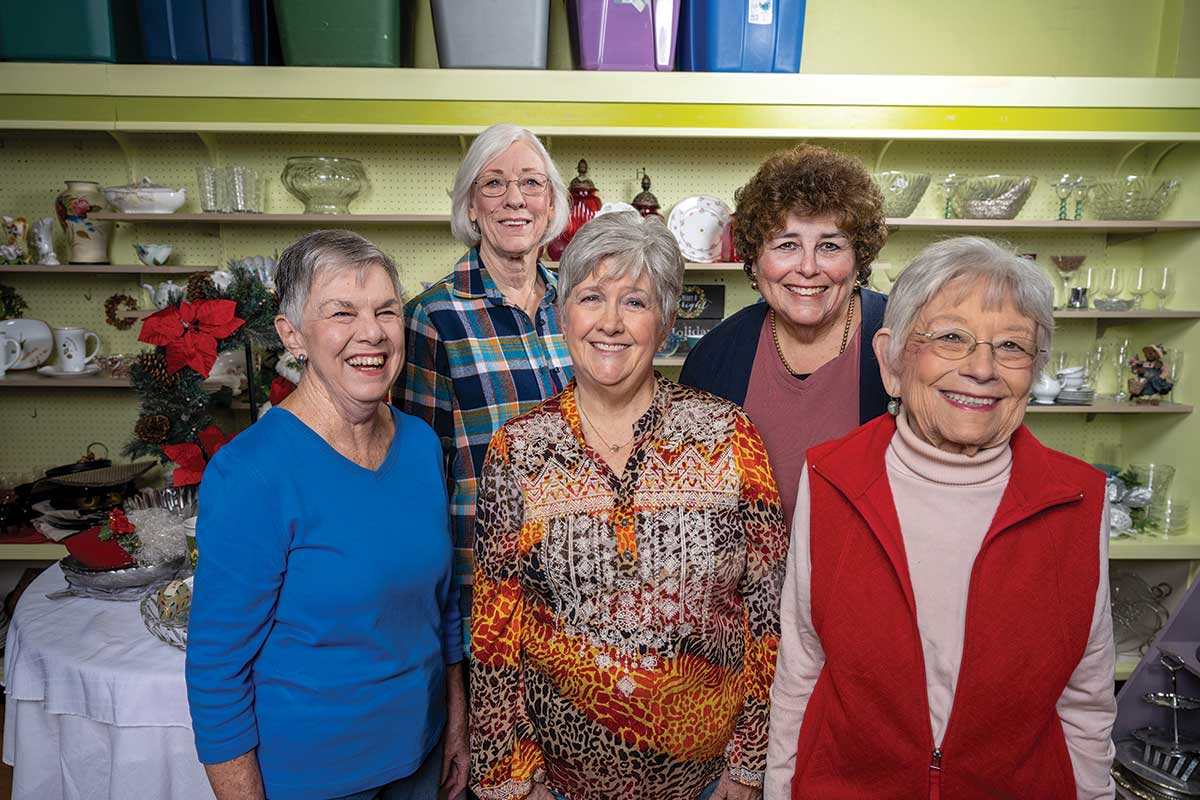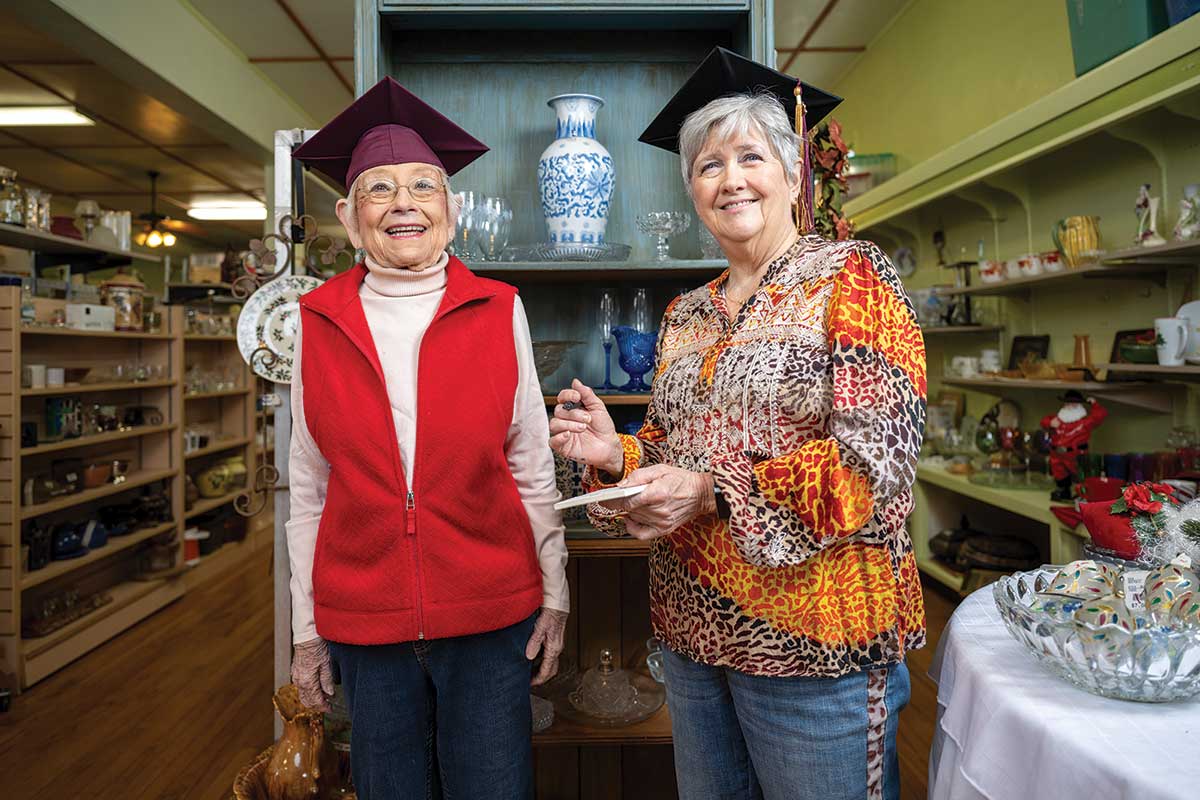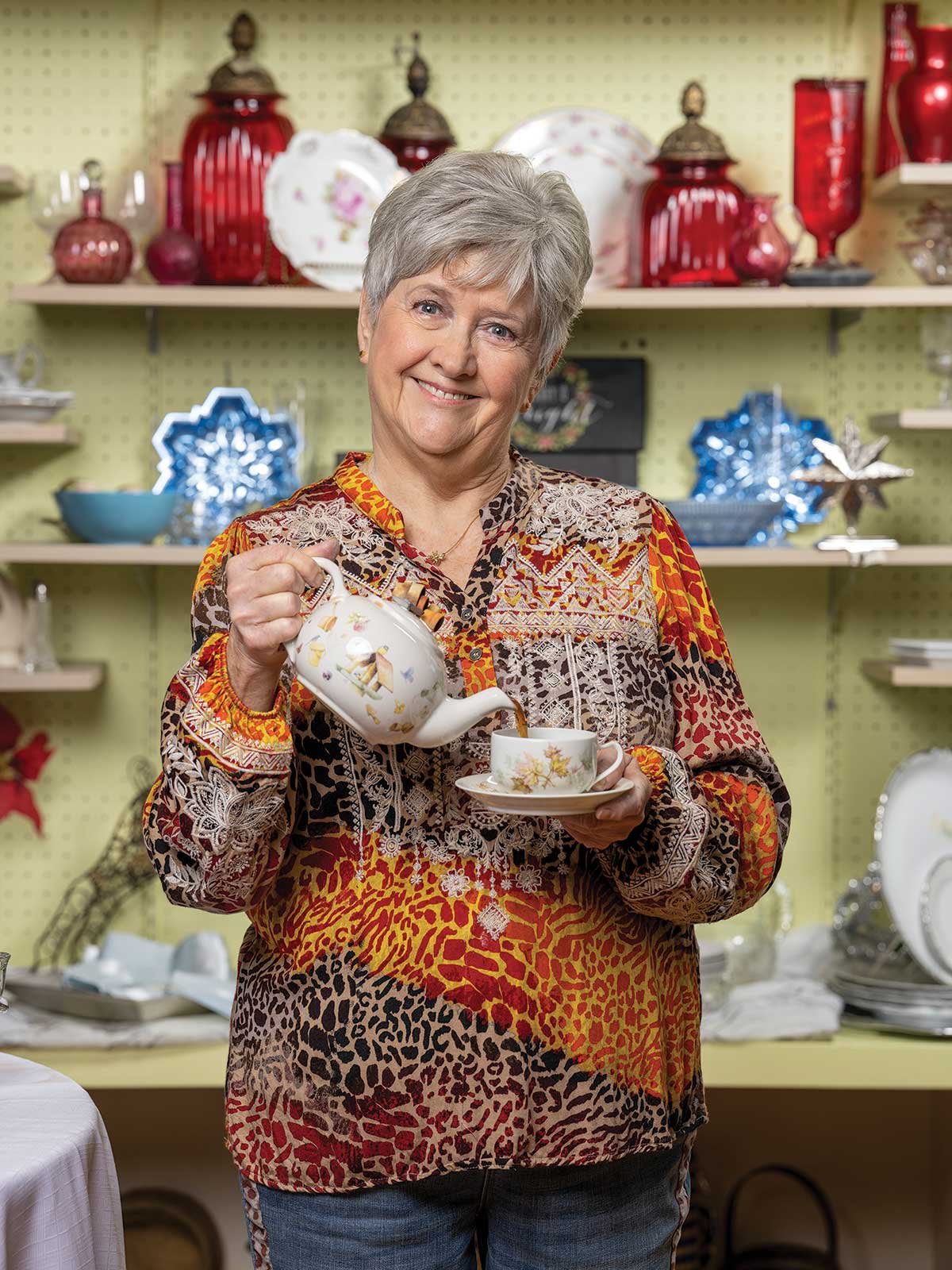Ask Mercedes Ellis about her favorite place to shop, and her answer may surprise you.
You might expect the Texas State University student to rattle off well-known fashion brands or influencer-approved Instagram boutiques. Instead, she’ll name a teeny, tiny secondhand shop in the small town of Comfort: the aptly named Pass It On.
It’s not just that Ellis, 20, enjoys sifting through racks of other people’s castoffs—though she does enjoy that. (In fact, she once found a pair of Gucci shoes for under $10.) It’s that more than anything, Ellis loves Pass It On because the store provides for its Hill Country community.
The shop offers a little bit of everything—clothing, furniture, books, appliances and seemingly everything between—at rock bottom prices. There’s not much they won’t sell. The inventory is unpredictable and priced to move. Recently there was an old leather dentist’s chair for sale on the shop floor.
But here’s what really makes Pass It On unique and why Ellis says she’ll always be a customer: Nearly every cent of the store’s proceeds funds college scholarships for students in the Comfort school district. Ellis herself received one of them.
“This shop has made so much possible for me,” she says. “Being a college student, every dollar really helps. This scholarship makes a big difference for me and my family. It’s a cycle of generosity, and I feel so grateful to be a small part of it.”
April Langston is also part of that cycle of generosity.
Langston, a member of Bandera Electric Cooperative, never expected to run the 25-year-old nonprofit thrift shop. She spent her career working in public education, advocating for students with special needs in the Northside and Boerne school districts. But in 2014, not long after retiring, Langston’s husband died in a plane crash. They were married 37 years. Her world fell apart.
“That’s when all of my plans changed,” Langston says. “I was retired and widowed. Suddenly I had all this time. I had to learn a different life. And it led me to Pass It On.”
In processing her grief, Langston felt drawn to volunteer work and community outreach. At Pass It On, she does both. Langston leads a small army of volunteers who do pretty much everything—process donations, organize displays, help customers—whatever it takes to keep the doors open and the lights on.

From left: Rosemary Collins, Ann Saur, April Langston, Jean Walke and Sally Clogston are the volunteers who keep Pass It On running.
Scott Van Osdol

Sally Clogston, left, founder, with April Langston, manager, of Pass It On.
Scott Van Osdol
The store is only open for eight hours each week—Fridays and Saturdays from noon to 4 p.m. Despite the limited hours, Pass It On has raised big money for Comfort students seeking education beyond high school. Langston says the store provided $65,000 in scholarships last year, up from $50,000 the year before. In all, 191 students have received $760,000 in aid.
“I guess it’s really not that different from what I’ve done all my career,” Langston says. “I’ve always worked in education, and I’ve always helped kids. The opportunity to go to college can change a child’s life. I don’t want anyone to miss out on that chance because they couldn’t afford it.
“And that’s why we’re all here at Pass It On.”
Langston doesn’t like to turn anyone down. For the past two years, Pass It On provided scholarships to every student who applied—all powered by people’s donations and, according to Langston, “a whole lot of Windex.”
But the store isn’t just a source of scholarship money. It’s a legitimate shopping destination in Comfort, a town of about 3,000. Langston says there’s always a line of shoppers waiting outside the door when she opens.
“When I tell you we’ve got something for everyone, we’ve really got something for everyone here,” she says, laughing. “If you come to Pass It On and leave empty-handed, you aren’t looking hard enough.”
And that’s one thing Langston makes clear. She isn’t in the business of selling junk. Of course, they get offerings that don’t make it to the shop floor, and those get donated elsewhere. But she’s seen Prada purses, Coach bags, delicate glassware and fine china all come through her door. Sometimes, even she’s a customer. Sure enough, Langston checks the tag on her shirt. She got it from—where else?—Pass It On.
Despite the tens of thousands of dollars in scholarship money provided over the years, Langston will tell you she’s the one who’s grateful. After the tragedy of her husband’s death, she found meaning and purpose at the storefront on Front Street. And for her, that’s priceless.
“I consider this my responsibility now,” Langston says.
“I feel God’s hand over this work. And as long as I can keep up, I’ll be here doing it.”



